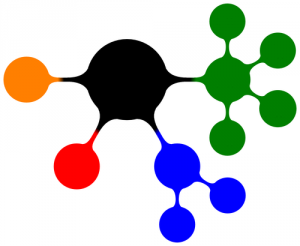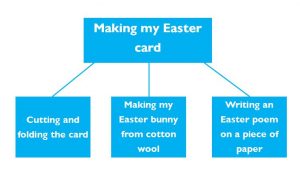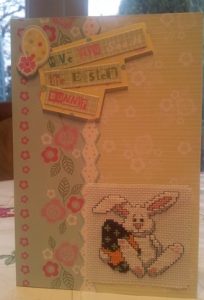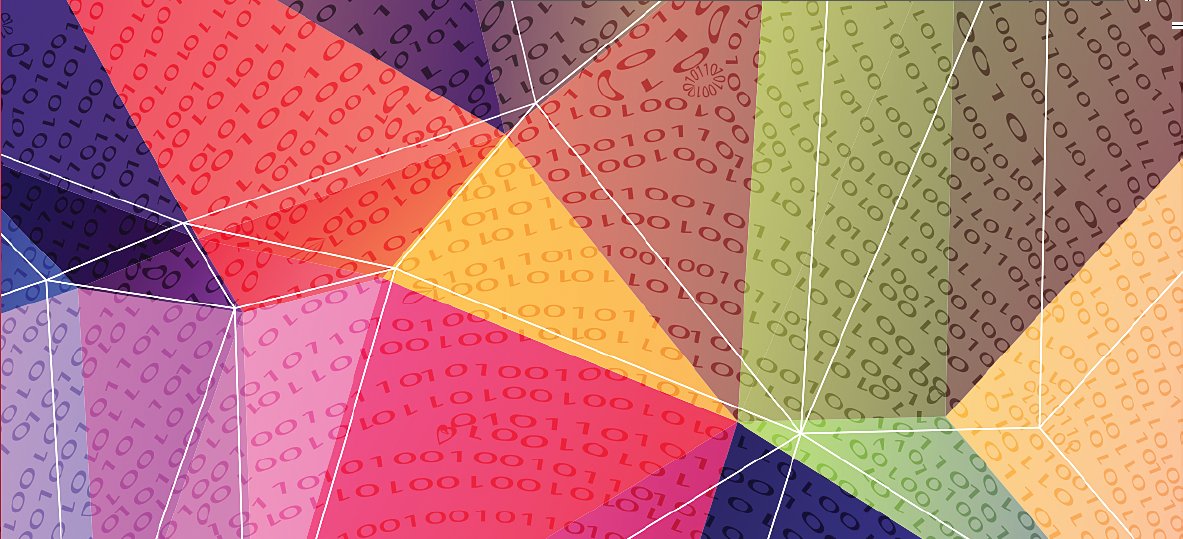 Aim: The process of breaking down a problem into smaller manageable parts is known as decomposition. Decomposition helps in solving complex problems and managing large projects.
Aim: The process of breaking down a problem into smaller manageable parts is known as decomposition. Decomposition helps in solving complex problems and managing large projects.
Activity: This approach has many advantages. It makes the process a manageable and achievable one – large problems are daunting but a set of smaller, related tasks are much easier to take on. It also means that the task can be tackled by a team working together, each bringing a different set of skills and knowledge. People who write computer programmes have to do this.
There are all sorts of activities you probably do already that can be used as a starting point. For example, you probably have a favourite way of teaching pupils to write a story or an essay. It is difficult to give specific examples because each teacher might use a different method. Some teachers may use mind maps, others will use a grid in which they list characters, location, action or whatever. Others might simply break it down into a beginning, a middle and an end and then break those headings down even further into smaller parts. It really doesn’t matter – they are all examples of breaking down a task to make it easier to manage and you can use them to explain the concept of decomposition.
Maths is another good starting point. Obviously, the method your school uses to teach maths, the age of the children and the nature of the ‘problem’ will determine how it is broken down. However, to illustrate what we mean, how would you solve the following?
- 2 + 4 + 3
- 2 x 4 x 3
- 2 (4+3)
- (2 x 4) + 3
- 2 (4-3)
- (2 x 4) – 3
Some teachers will be familiar with the actual word ‘decomposition’ as it is a widely accepted method of teaching e.g subtraction. Even if you teach subtraction by ‘borrowing’ and ‘paying back’, you will still be teaching children to break down the process into discrete operations.
Adding and subtracting fractions is another good example – especially if you have to work with mixed numbers or improper fractions. Or you could teach children to multiply using factors.
Adapting it:
For younger children, or if the thought of using maths to teach decomposition makes you feel faint, try using a craft project or a technology project. So making Christmas /Easter /Mothers’ Day cards could be decomposed into e.g
It actually does not matter in which order these tasks are done. They are all quite separate activities. In the interests of classroom management you may well have different groups doing them in a different order if only to save on the number of tubes of glitter / bags of cotton wool /pairs of scissors you need! If you can deliberately organise it this way, make cards representing each of the three (or more) separate activities and let each group stick up the order in which they did them.
However, the next stage which is to stick the Easter bunny on the front of the card and stick the Easter poem on the inside are almost certainly going to be sequential. Talk to the children about this. Could they stick the Easter bunny on the front of the card if they hadn’t made the bunny or the card? What about writing ‘Love from Jane’ inside it? Could they do that before they stuck their poem in? What would the problems be?
With older children you could break each one of the boxes down into other separate activities such as cutting out a rabbit shape, spreading glue on, sticking on the cotton wool etc

Think about how you would go about making this card…
As a follow up lesson with older children, find a Nintendo / Playstation game and look for the list of ‘credits’ – the programmers who actually worked on the game. It will be a l-o-n-g list!
Discuss with the children how all these people could work together on the game. They would need to decompose the task into separate chunks of work. Ask the children if they can think what some of those might be. e.g one team could develop one of the characters, another could do the title graphics, another could do the sound etc. There is a more advanced version of this last activity for older or more able children.

One Comment on “Decomposition (All ages)”